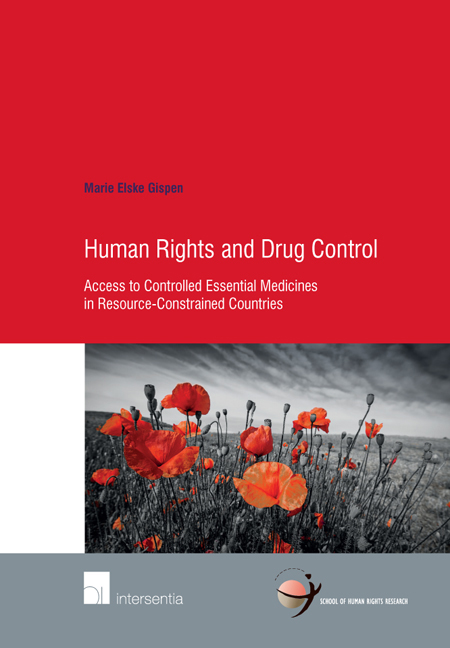 Human Rights and Drug Control
Human Rights and Drug Control from Part 3 - Country Studies
Published online by Cambridge University Press: 27 September 2018
Introduction
Various schools of thought claim that international law in general and human rights law in particular are fraught with imperialist and postcolonial incoherencies. Partly building on the traditional discussion on the universality and cultural relativity of human rights, international law is accused of structurally reinforcing the subordinate position of Low and Middle-Income Countries (LMICs). In this respect, Rajagopal considers that the ‘human rights discourse and the leading spokespersons for human rights [to] have failed to stop the consolidation of hegemonic international law and [to] have rather been complicit in it.’ In light of these concerns, the question is whether new interpretations of existing fields of law, such as the one presented in this book, may also fall victim to similar structural constraints. While this book is neither primarily concerned with the ‘colonialist’ nature of international law, nor the universality and cultural relativity of human rights per se, these discussions signal the need to continue a more contextual approach.
In this third part of the book, the study takes an ‘empirical turn’, for as Schaffer and Ginsburg observe, ‘international law is the product of specific forces and factors; it accomplishes its ends under particular conditions’. In fact, focusing on local conditions and on implementation is vital because, from a governance perspective, ‘the successful delivery of collective goods and services is not only a question of political preference and public choice, but also a question of the ability of State institutions to function at all’. Part 3, therefore, presents the results of two qualitative country studies conducted in Uganda and Latvia. These studies (Chapters 6 and 7) explore the interplay of the human rights and drug-control frameworks in practice, which may assist in revealing the complexities of and gaps in the international drugcontrol system with respect to human-rights compliant medicine provision, if any exist at all.
The present chapter provides a brief introduction in terms of design and methodology of this third part, commencing with a description of the research design, which includes the research approach used, the central research question, and the methods of data collection and analysis (Section 5.2). Next, the chapter expands on the rationale behind the country selection (Section 5.3). Finally, it points out various limitations that one must take into account (Section 5.4).
To save this book to your Kindle, first ensure [email protected] is added to your Approved Personal Document E-mail List under your Personal Document Settings on the Manage Your Content and Devices page of your Amazon account. Then enter the ‘name’ part of your Kindle email address below. Find out more about saving to your Kindle.
Note you can select to save to either the @free.kindle.com or @kindle.com variations. ‘@free.kindle.com’ emails are free but can only be saved to your device when it is connected to wi-fi. ‘@kindle.com’ emails can be delivered even when you are not connected to wi-fi, but note that service fees apply.
Find out more about the Kindle Personal Document Service.
To save content items to your account, please confirm that you agree to abide by our usage policies. If this is the first time you use this feature, you will be asked to authorise Cambridge Core to connect with your account. Find out more about saving content to Dropbox.
To save content items to your account, please confirm that you agree to abide by our usage policies. If this is the first time you use this feature, you will be asked to authorise Cambridge Core to connect with your account. Find out more about saving content to Google Drive.